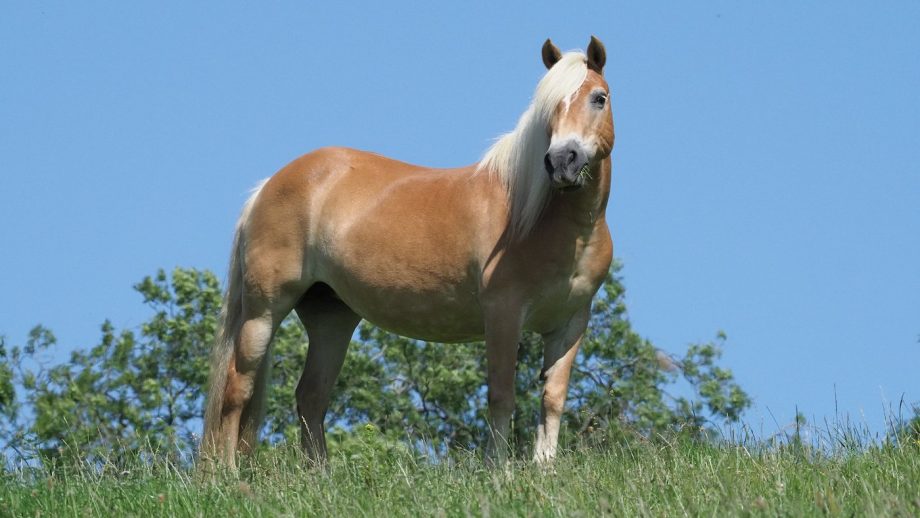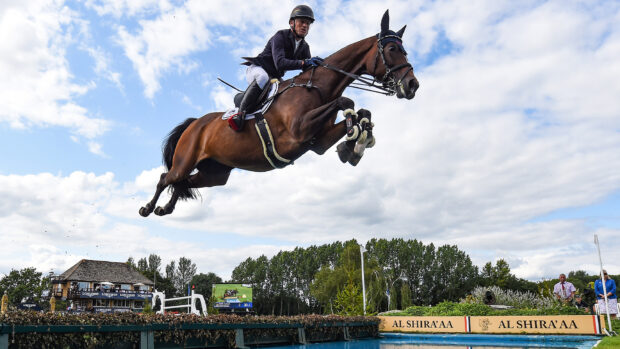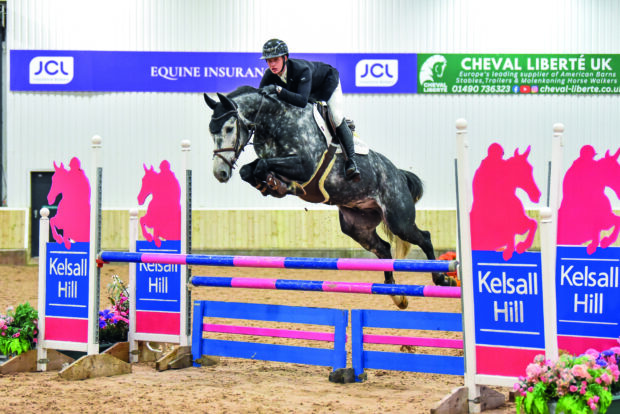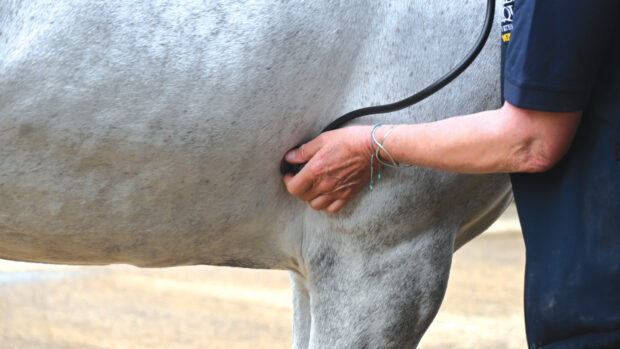THERE are hopeful signs that change is being made in the showing world regarding equine weight – but “we all need to keep on it”.
After a successful pilot in 2019, the Horse Trust and behaviour change specialist Tamzin Furtado of Liverpool University joined forces at the Royal International Horse Show (20–25 July) to assess the condition of horses and ponies. The animal in each class with the healthiest body condition was given an award.
The aim was to reward healthy condition, and spread the word on how best to maintain it.
Dr Furtado, whose PhD was on equine obesity and owner attitudes to it, told H&H the pilot involved hunter classes, entrants in which were more likely to be near ideal body condition, but this more extensive project involved more than 300 animals in 12 classes, from ponies to cobs.
“It was super-interesting,” she said. “It really highlighted that there is an issue with obesity in showing, but it’s not what people think it is.”
Dr Furtado said the scheme busted some myths; notably that all showing horses and ponies are fat. Although the smaller ponies and maxi cob classes “definitely had trends towards the upper ends of the condition-scoring scale”, this was not the case across the board.
This led her to believe that competitors may be aiming for an “ideal” weight based on the classes they contest, which means efforts can be targeted on where they are needed.
Another major finding was that there seems to be a “vicious circle” of competitors thinking judges prefer fatter horses, and feeling pressure to keep them that way, so judges in some cases have to place overweight animals, as they all are. Competitors then think they have done right by presenting fat horses.
Dr Furtado said judges told her they were not looking for fat horses, and all the judges and stewards they spoke to were very supportive of the scheme. One horse who was given the condition award won his class, and then his championship.
“The judges and producers were very clear about not wanting horses to be obese,” she said.
“I assumed it would be people who show as a hobby who had slimmer horses but quite a few who won the condition awards were professionals.
“The feedback was really good from competitors; we had several people saying they were more pleased with the condition award than being placed, as it meant more, and people saying they’d been fighting laminitis and worked really hard to get the horse to that condition, so they were really pleased to win.”
Dr Furtado said several producers said how pleased they were to see the initiative, and that one of the most positive outcomes was all the conversations, helping to spread the word.
“The overall message is that it was more positive than frightening; moving in the right direction,” she said.

Condition award-winner Brindlebrook Prime Suspect, with Tamzin Furtado
“This is not to say that there is no issue with weight in showing. The proportion of overweight horses across the board was high, higher than the prevalence in the general population, which is already worrying; we all need to keep on it. Change is needed, as obesity is one of the biggest welfare issues in the UK. But as someone who went in with little knowledge of showing, I came away feeling like there was hope.
“My message to competitors based on this experience is: don’t be afraid to present your horse at the weight you know to be healthy.”
Condition award-winner Ballinclare, a five-year-old mare owned by Loraine Homer and ridden by Alice Homer, won the large intermediate show riding type and the supreme intermediate championship.
Alice said: “She often comes in at the end of winter with a bit of a tummy on her, but I don’t think that is unlike most mares.
“We spend most of the time keeping the weight off her, because I think they look classier, they look much better fit. I don’t think you want a show horse that looks like you couldn’t take it for a day’s hunting – she would keep up!”
British Equine Veterinary Association president Lucy Grieve told H&H the initiative is “shining the spotlight on what is healthy condition”, in an environment where there can be emphasis on excess weight.
“It’s important to do that, and reward those who are competing in showing but taking their horses’ health seriously, as paramount,” she said. “They won’t put their horses’ health in jeopardy to get more favour in the show ring, and it’s important they do that.
“It’s very much a work in progress and the more of this that’s done, at shows across the country, the better things will get.
“It’s also nice for those in showing who genuinely aren’t aware of the dangers they’re putting their horses in by having them overweight. The carrot approach to educating is to say, ‘You might not see the difference but this horse is a healthy weight, yours isn’t.’ That might give them the incentive, and open up the conversation.
“If some people could sometimes see first-hand the damage done to their horses’ bodies from being too heavy, they might think twice. Because it happens over time, and isn’t necessarily staring them in the face, it’s hard to associate it but that’s where we as vets can help them understand.”
The idea is to roll the scheme out over more shows next year.
You might also be interested in:

Show to offer awards for horses of healthiest weight
‘We want to help recalibrate people’s ideas of a healthy weight’

The equine obesity epidemic: what can you do to help?
“No matter what your role is, what are you going to change, to help in this obesity epidemic?”

Not just laminitis: vets warn of performance-related issues caused by excess equine weight

‘They’re getting fatter and fatter’: Vet’s warning over obesity-related equine deaths
‘As a rule, you’ll get much more criticism on a livery yard if you can see ribs than if your

‘May the fields in the sky be filled with carrots’: sad farewell to charity’s ‘golden girl’
“The only thought that keeps us positive is that we know you will be reunited with your best friend Bess.
Horse & Hound magazine, out every Thursday, is packed with all the latest news and reports, as well as interviews, specials, nostalgia, vet and training advice. Find how you can enjoy the magazine delivered to your door every week, plus options to upgrade to access our H&H Plus online service which brings you breaking news as it happens as well as other benefits.




